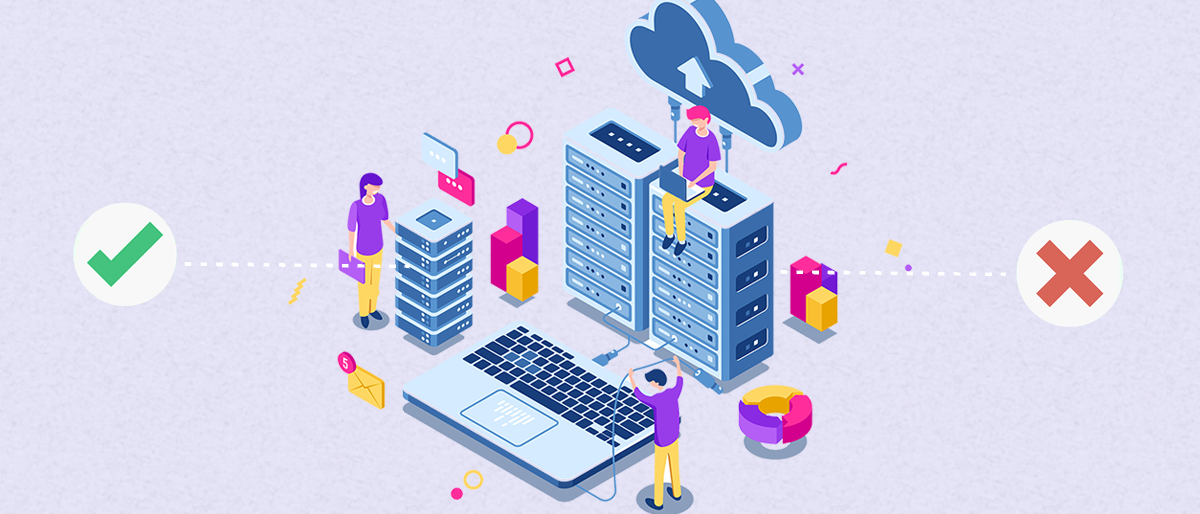Cloud computing has been skyrocketing in terms of its popularity lately. Survey after survey predicts its growth such as Logic Monitor’s survey forecasting 83% of enterprise workloads to be held in the cloud by 2020. The same survey suggests that 20% of the workload will be stored on private clouds, whereas, 41% of the workloads will be backed on public cloud platforms.
The remaining 22% of the enterprise workloads will run on hybrid cloud platforms by 2020. What’s more, expenditure on cloud computing is anticipated to grow by six times the rate at which IT spending will occur through 2020.
If you are among the folks planning on investing in cloud computing, it is best to unearth its pros and cons. So, here we go:
Advantages offered by cloud computing
Cloud computing relates to the use of remote servers hosted on the internet to store and process data. Traditionally, a personal computer or local server is used for storing, managing, and processing data.
Here are the benefits that it offers:
Cost effective and less space consuming
Since we defined cloud computing as hosting remote servers on the internet, it is clear that it does not require any hardware for data storage. Obviously, this saves precious space and money that would otherwise go in purchasing and maintaining IT hardware for data storage. Cloud is also available at reasonable rates in contrast with traditional desktop software. This lowers a business’s IT expenses.
Offers nearly unlimited capacity
Storing information on the cloud provides unlimited storage capacity. Therefore, one does not have to worry about running out of storage space. This is another important plus that cloud computing brings to the table.
Easily accessible and allows you to share documents
With cloud computing, stored data is accessible not from one device but via all the options that the system supports. These include netbooks, smartphones, and iPads to name a few. Consequently, the easy accessibility boosts efficiency. Besides accessibility, cloud computing also allows sharing documents, further boosting collaboration and flexibility.
Backup and recovery
When it comes to cloud computing, all your data is present in the cloud, which backs it and restores it as well. This makes it far more reliable and safe than a physical device. Most cloud service providers based in your location such as Seattle cloud solutions are competent to handle information recovery in case of a crisis. No wonder 85% of the enterprises keep their sensitive data in the cloud.
Demerits of cloud computing
While cloud computing offers hard-to-resist merits, there are some associated disadvantages as well that need to be taken into account. These are:
Ongoing cost
Although cloud computing is a far more reasonable option than traditional server data storage, it still bears ongoing costs. In the case of the cloud, there is no up-front investment in IT installation. However, you need to pay maintenance costs in both cases. Therefore, your initial choice of picking between traditional and cloud data storage relies on how much startup capital to invest.
Impact on quality
The internet is not only used for storing data on remote servers but also for watching videos, listening to audios, uploading and downloading heavy files, and much more. This can affect the quality of the cloud computing connection as numerous people use the internet at one time.
Limited control
The service provider owns, manages, and monitors the entire cloud structure. Consequently, the provider may transfer little to no control to the customer. Key administrative tasks such as updating servers, server shell access and so on are not passed to the customer. In this regard, you need to talk to the cloud service provider beforehand and discuss how much control will be given to you.
Security glitches
Cloud service providers do whatever they can to provide the best security standards for safeguarding your data and important files. However, external service providers are also always open to risks. Using cloud-powered tech translates into providing the service provider with access to all important business data.
On top of that, opting for public cloud hosting opens up security challenges that may be hard to detect. Moreover, the ease of access to cloud services means that nefarious users can scan and identify loopholes within a system. In other words, a hacker may attempt to break into the data of other users on the same shared server. However, the likelihood of such exploits is rare, so you do not have to worry.

